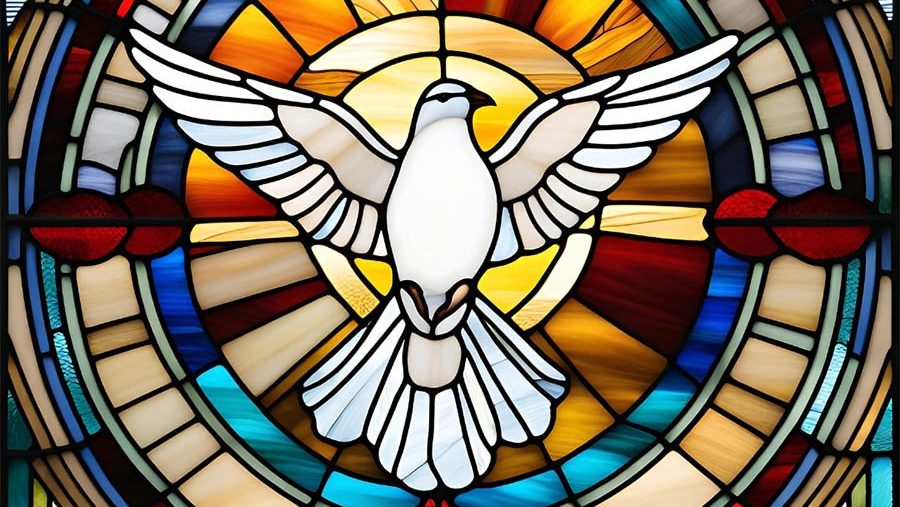Maryland's bishops released a pastoral letter on artificial intelligence June 5, urging Catholics to harness the use of emerging technologies while always putting "human dignity" at the forefront.
The bishops tied the release to the feast of Pentecost, celebrated June 8 throughout Catholic parishes.
Archbishop William E. Lori and Auxiliary Bishop Adam J. Parker of Baltimore were among the authors of the 1,400-word letter.
"As AI technologies transform our lives, workplaces, relationships and even our sense of identity, the Church must be a prophetic voice, calling the world to place the human person, made in the image of God, at the heart of this transformation," said the letter posted online by the Maryland Catholic Conference.
The MCC is the public policy voice for the Catholic bishops in Maryland.
Archbishop Lori said he hoped the letter would prompt Catholics to ponder and pray about the topic.
"AI is already playing an increasing role in the daily life of Marylanders and fellow Catholics," Archbishop Lori said. "It seems like a good time to reflect on how to use this new technology in ways that enhance human dignity and help convey the faith while avoiding its misuse. I hope this pastoral letter will spark prayer, reflection, discussion and action."
Cardinal Robert W. McElroy of Washington and Bishop William E. Koenig of Wilmington, Delaware, also signed the letter along with Washington Auxiliary Bishops Roy E. Campbell Jr., Juan Esposito-Garcia and Evelio Menjivar-Ayala. Both the Washington Archdiocese and Wilmington Diocese extend into Maryland counties.
Jenny Kraska, executive director of the Maryland Catholic Conference, said it is an important and timely message.
"The release of this pastoral letter on the feast of Pentecost couldn't be more fitting," Kraska said. "It is a powerful reminder that the Spirit still sends us out, not just into villages and cities, but now into the digital world."
Artificial intelligence is a technological and spiritual challenge, she said, "and this letter reminds us that the church must lead with moral imagination and prophetic courage, ensuring that AI serves the human person and doesn't undermine the dignity that comes from being made in the image and likeness of God."
In the letter, the bishops emphasized using AI for good works, not to dominate or dehumanize.
The new pontiff also appears to be making AI a top issue. When Pope Leo XIV addressed the College of Cardinals May 9, the day after his election, he referred to "developments in the field of artificial intelligence that pose new challenges for the defense of human dignity, justice and labor."
The Maryland bishops' letter said, "Just as the Apostles were filled with courage and clarity to speak the truth in new tongues (Acts 2: 1-11), so too must we as a church discern how to speak and live the Gospel amid the new language and powers emerging through artificial intelligence (AI).
"Pentecost reminds us that technology is not foreign to the Spirit's work, for God's Spirit moves through history, culture and human creativity. Yet we also know that the Spirit leads us to truth, justice, peace and communion – never domination, deception or dehumanization," the letter said.
The bishops emphasized Catholic social teaching on technology by writing: "No matter how advanced machines become, they can never replicate the soul, the conscience or the eternal destiny that belongs to each human being. The Spirit poured out at Pentecost unites us not through systems, code or data -- but through communion, compassion and mission. AI must always serve the person, never diminish or replace human dignity."
They also emphasized that AI can be a useful tool if applied with the right intent.
"We also affirm that AI, when developed and used ethically, can greatly contribute to the mission of the church and the common good. Like the printing press, radio or the internet, AI is a tool and tools can be directed toward holiness, healing and human development," the bishops wrote.
In conclusion, the bishops said the church must lean on the Holy Spirit for guidance.
"The church has faced many turning points in history – the printing press, the industrial revolution and the dawn of the internet. In each case, we have been called not simply to adapt, but to discern. As followers of Christ, we are called not to fear the future, but to shape it with courage and faith -- proclaiming Christ in new ways, to new peoples, with new tongues.
"Today artificial intelligence is a test of our humanity, our ethics and our faith. Will we allow technology to form us in its image -- or will we shape it according to the Gospel?
"Let us invoke the Holy Spirit, who "renews the face of the earth" (Psalm 104:30), to guide us in this time. Let us be wise, courageous and united -- speaking truth in love and forming a society where the image of God in every person is reverenced and protected," the letter said.

